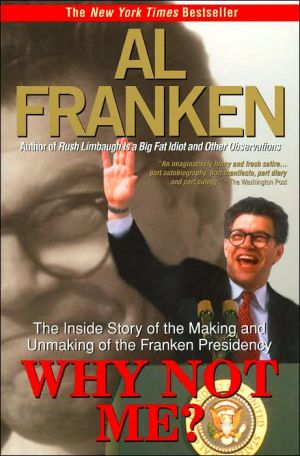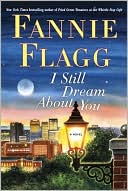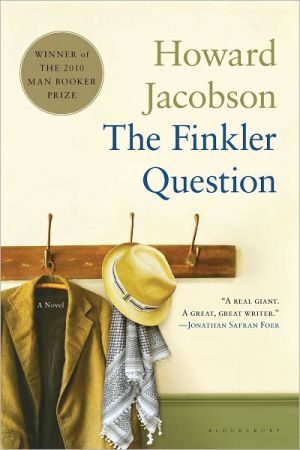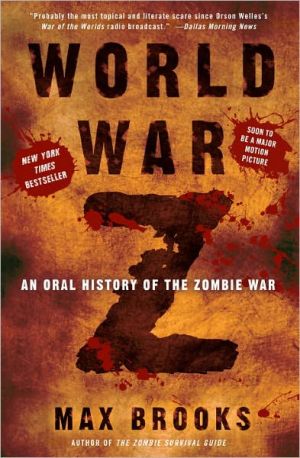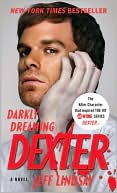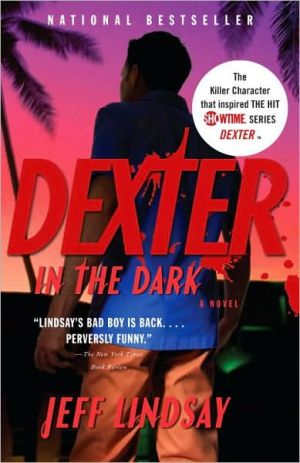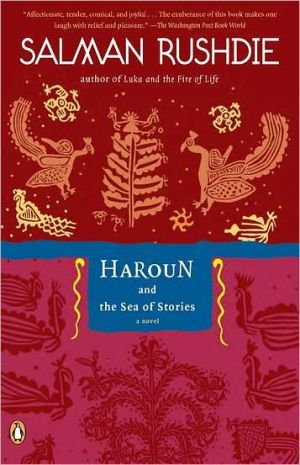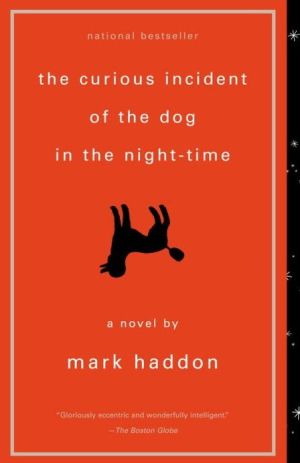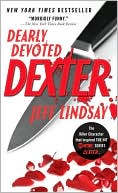Why Not Me? The Making and the Unmaking of the Franken Presidency
Updated with more on the real race in 2000!\ First came Theodore White's The Making of the President, 1960. Then All the President's Men. Now the searing chronicle that will forever change the way we view the man and the office...\ Why Not Me?\ ...chronicles the dramatic rise and dizzying fall of Al Franken, who would become the first Jewish president of the United States. Meet the president as a young man. Witness the Franken campaign in its infancy, as the candidate pledges "to walk the...
Search in google:
From the man who proclaimed the '80s the Al Franken Decade, who dared declare multimedia conservative juggernaut Rush Limbaugh "a big fat idiot," comes Why Not Me?, a hilarious look at Franken's courageous, groundbreaking Presidential campaign that never was.Joel SteinIt's unclear what exactly Franken is ridiculing in this political satire, but the results are certainly funny...Perhaps he's mocking the American voter, or the election system, or even himself. Whatever his point, doggonit, it's sharper than making fun of 12-step gurus. -- Time Magazine
From Daring to Lead, the authorized campaign biography by Al Franken and Tony Schwartz:\ THE COURAGE TO DARE\ The Pulitzer Prize-winning journalist David Broder once wrote something to the effect that "anyone who's willing to do what it takes to be president should be immediately disqualified." And that's why I want to be your president.\ As a regular voter for most of my adult life, I have grown to share the average American's disgust with "politics as usual."\ Year after year, election after election, we've seen candidates prostitute themselves on the altar of special interests: corporate fat cats, six-figure lobbyists in Italian loafers, women, gays, and the so-called disadvantaged. Is it any wonder that with each passing election we've witnessed lower and lower voter turnout as the public's skepticism turns to cynicism, which leads to apathy and despair, which can cause sleeplessness, dry-mouth, and loss of sex drive? And that's why I want to be your president.\ The reason I'm running is very simple: to restore America's lost faith in its leaders. Of course, the high-paid media pundits may say this claim is grandiose, that I'm not qualified, that I'm deluded or even seriously mentally ill.\ But I think the American people know better.\ Yes, I know the job of President of the United States can be a difficult one. Full of challenges, decisions, and meetings. Furthermore, a president must be diplomatic and statesmanlike, which sometimes can mean being nice to people he doesn't like. As the leader of the world's only remaining superpower, the President can ignite nuclear Armageddon at the touch of a button, killing billions. That is a responsibility not to be taken lightly.\ Yes, the President does earn two hundred thousand dollars a year. But when you break that down on an hourly basis, it's no more than a union plumber in the New York City public school system or a third-rate heart surgeon, neither of whom confronts life and death decisions on a daily basis, except the heart surgeon. Still, by the standards of the forgotten middle class, the working poor, and the not-working poor, two hundred thousand dollars is a nice chunk of change. But, unlike some of the candidates I'll be running against, for me the money is secondary.\ I recognize that any president necessarily stands on the shoulders of giants: Washington, Lincoln, etc. Anyone running for president must wrestle with the nagging suspicion that he somehow doesn't "measure up" to Washington and Lincoln and the others. But self-doubt is a luxury, and anyone who knows A1 Franken knows that he selects his luxuries very, very carefully. And that's why I want to be your president.\ My inspiration to run for president is threefold. First, there is the Franken family tradition of public service, which began back in the old country when my uncle Moishe left his little village in Russia. Everyone in the village said it was a public service. But seriously, this is not a time to indulge in traditional Yiddish humor. Or so my media advisors tell me.\ Second, as a parent, every day I look into the eyes of my children, not only to make sure that they're not on drugs (they're not, thank God) but also to remind myself of the legacy I will leave behind. As Miss America 1988, Kaye Lani Rae Rafko, once said, "Our children are America's future." I agree. And I have made a solemn pledge to my children that I will leave this planet in at least as good a condition as I found it—if not better.\ Third, I have been inspired by the example of some recent candidates for our nation's highest office: former Tennessee governor Lamar Alexander, eccentric businessman Ross Perot, Reagan-era functionary Alan Keyes, and tire king Morry Taylor. When I looked at them I said to myself, "Hey, I can do that!" The decision to run for president is not one that is made casually. I am well aware of the toll this will take on my family and on Colin Powell, who will never hear the end of it if I win.\ Furthermore, campaigning for president can be a full-time job, leaving very little time for making money by developing concepts for sitcoms, let alone writing entire scripts. Nevertheless, both I and my therapist believe that I am fully prepared for the task that lies ahead, physically, mentally, and emotionally, as long as I keep up with our regular Tuesday and Thursday sessions and group on Saturday.\ But the decision was not mine and my therapist's alone. There was a third person involved. The most important person in my life. Franni Franken is not just my wife, not just the mother of my children, not just the woman who cleans my house—she's also my best friend. By that I mean we have sex together. But after the sex, we often have a conversation. That's what makes us not just friends but best friends. This is not to say that if you and your spouse are not friends, that you shouldn't vote for me. Because I know what that's like too. God knows, we've had our problems. When I told Franni that I was going to run for president, she said, "Fine. If that'll make you happy." That's the kind of woman she is. So, she's on board.\ My children, on the other hand, were another matter. Both Joe and Thomasin felt that as members of the First Family they would be living under a microscope with no privacy whatsoever; that the twenty-fourhour-a-day news cycle and modern, sophisticated electronic news-gathering techniques would afford them no opportunity to grow up in anything resembling a normal household. My teenage daughter, Thomasin, who is just getting her feet wet in the dating "scene," whined that trusting her private life in these delicate years to the pledged word and promised restraint of the nation's bottom-line-obsessed, cutthroat news media was no better than leaving a starving fox to guard a fully stocked henhouse. Her little brother, Joe, added that no matter how much they would try, his peers at school could not help but treat him differently if he were the son of the President and that he feared losing the companionship of close friends during this crucial formative period and even his very innocence itself.\ Kids!\ In our family we make important decisions by consensus. Everyone—Franni, Joe, Thomasin, and myself—must agree before we embark upon major life changes. (That's why we never bought that DeLorean I wanted.) It was time for a family meeting.\ On a rainy Sunday afternoon in March our family gathered around the kitchen table, as so many other American families do, whether to cope with a family crisis, tell a joke, watch a sporting event, play cards, discuss a string of unsolved rapes in the neighborhood, or just have a snack.\ While my advisors waited anxiously in the next room, I laid out the pros and cons of a campaign for the presidency and shared my vision for America's future with my family. I described for my kids an America where every child, not just the children of the privileged few, would have clean water, access to the Internet, and regular vaccinations.\ "You're just pulling this stuff out of your ass to make us feel guilty," Thomasin said. "I didn't ask to be inoculated."\ Franni came in on my side like a true champion. "Thomasin! If your dad's going to be president, you won't be able to use words like ass at the dinner table."\ "My point exactly," Thomasin replied.\ "And if your dad is president, you won't be able to answer back either," Franni riposted.\ "Right," Thomasin said, rolling her eyes. "Mom, you're not doing yourself any good here."\ Sensing the wisdom of her daughter's words, Franni decided to change tack and snuck me a conspiratorial look that seemed to say, "You catch more flies with honey than you do with vinegar."\ "Honey, you know how important being president is to your dad. And I'm sure he understands how much you dislike the idea of his being president. But this is something he wants us to agree on as a family. So, what if Dad took us all to Hawaii for spring vacation? You'd feel better about Dad running for president then, wouldn't you?"\ Franni was on to something. Because she spends so much more time with the children than I do, she knew how much a simple ten-thousand-dollar vacation to Hawaii would mean to a status-seeking Manhattan teenager. But it was my son, Joe, who provided the clincher.\ "Thomasin, let's just take the trip. A.) He'll never win. And B.) The Simpsons is on."\ And so, a month later, jet-lagged, tanned, and with my family fimmly behind me, I began my quest to lead the world, trusting in God to show me the way.\ THE JOURNEY BEGINS\ My dad, Hemman Franken, used to say that if you want to know where a man stands, you've got to know how he got to where he's standing. Dad wasn't so good with words, but I think you can see what he was driving at.\ I was born in a nondescript ranch house, the son of the son of immigrants and the son of a daughter of a son and daughter of immigrants.\ We lived in a little town called Christhaven, Minnesota. We were the only Jews for miles. My father owned and ran Franken's Department Store, which by the time I was born had only three departments: lawn furniture, men's work clothes, and driveway sealants. Modern inventory techniques had not yet made their way to Christhaven.\ Dad instilled in me the values of hard work and thrift. I always used to tell him that if he fired some of his lazy and slow-witted employees, who frankly had very little to do anyway, that he wouldn't have to work so hard or be so thrifty. But he also believed in loyalty. Also, he said that the Gentiles brought in business.\ In addition to loyalty, hard work, and thrift, Dad felt that trust—even when it meant extending credit to our deadbeat neighbors—was important, although I realized early on what Dad seemed not to: that trust would only lead to more hard work and thriftiness.\ Dad also believed in the innate goodness of human nature, and that everyone deserved a second chance. One of my earliest memories of my father is him giving a youthful shoplifter a stern lecture and then a free candy bar instead of calling the police. Perhaps that's why Franken's was so popular with Christhaven's many shoplifters.\ Ironically, when his business finally went under, after the store had been foreclosed on by the bank and our assets attached by Dad's creditors, leaving us with nothing but a mountain of unpaid bills, no one gave Dad a second chance. Always a proud man, convinced that Franken's would soon reopen with more departments than ever, Dad refused to declare bankruptcy, leading to the first of several short jail terms.\ I don't know exactly when Dad started to become bitter and disillusioned, but I think it might have been in jail. Because when he resumed from his second stretch in prison, Dad seemed not to be motivated by hard work, thriftiness, loyalty, trust, or innate faith in human goodness so much anymore. He seemed to be motivated by revenge.\ Dad sued the town for the very first time when I was just eleven.\ It was Christmastime. Dad had never mentioned to me how much Christhaven's lavish Nativity display in the town square had bothered him. But judging by the vehemence with which he now began to attack it in court, it must have stuck in his craw for quite some time. Working with an ACLU lawyer he had met while serving time, Dad sued the town, demanding that it either dismantle the manger scene or erect an equally magnificent menorah.\ I'll never forget the sight of the wrecking ball knocking the heads off the Three Kings while my dad merrily waved the court order under the mayor's nose. It was then that I realized what one man with a good lawyer can accomplish.\ While Dad seemed to have found a new lust for life, his new hobby—suing the town—was not one the whole family could enjoy. In fact, we think that my brother Otto's drinking problem and sex addiction can be traced back to some of the difficulties that he and I encountered in school as the result of my father's notoriety. My mother still weeps when she recounts the story of how Otto and I came home from school one day, swastikas drawn on our foreheads with blue Magic Markers.\ There was no mistaking it. This was anti-Semitism. It was as plain as the swastika on my forehead.\ It's hard to imagine now, but in 1962 many people felt that only members of certain religious groups, such as Presbyterians and Episcopalians, for example, were qualified to be president. In fact, America had just elected (and was about to shoot) its first Catholic president. In 1960, when John F. Kennedy launched his bid for the White House, there were many, my parents among them, who believed that a Catholic was unfit to serve as America's leader; that all Catholics were in thrall to their puppet master in Rome: the Pope; that they were intellectually ill-equipped for anything more than brutish manual labor and the hollow re-creation of excessive devotion to the superstitious hocus-pocus of their beloved Mother Church.\ Irish Catholics in particular were regarded as drunkards and loutish potato eaters who, given half a chance, would sooner spend their last dime in the neighborhood saloon than buy food for their drooling simpleton of a wife and her innumerable brood of squalling infants, each one an unwelcome addition to the Pope's legions of brainless drones.\ That was then.\ Now, in 1999, only Arabs are held in the sort of contempt once reserved for Catholics, Jews, and Communists. It will still be many years before America has its first Arab president but I hope I am alive to see that day. Also, I think it will be a long time before we see a Hispanic president. Also, blacks.\ As it turned out, President Kennedy was one of our greatest and most noble leaders who imbued the office of the presidency with a single-minded devotion to only the loftiest of ideals for the betterment of both our nation and the world. His heroic example and irreproachable moral standing still inspire us today every time we look at a half dollar (the heads side).\ But standing there in front of the mirror in 1962,1 didn't know much about that. I only knew that I was a little boy with a backward swastika drawn on my head. And I knew one more thing: I knew that prejudice, no matter what form it takes, is bad.\ As I scrubbed my forehead, first with soap and water and then with an acetone-based cleaning fluid, I swore that day on the grave of my father, yet to be dug, that I would not let small-minded bigotry or widespread prejudice stop me from fulfilling my destiny. I wouldn't restrict my sights to the traditional "Jewish" professions of medicine, law, accounting, and dentistry. I would make my mark in a sphere of endeavor previously regarded as "off-limits" to my people: show business.\ At that time, the number of successful Jews in the performing arts could be counted on one hand: Irving Berlin, Jerry Lewis, Kirk Douglas, Charlie Chaplin, George Gershwin, Ira Gershwin, Eddie Fisher, and Elizabeth Taylor. That was it. Eight Jews. Plus, four of the six Three Stooges. Also, Yitzhak Perlman, but this was years before he acknowledged he was Jewish.\ Where am I? Oh yes. Anti-Semitism. It is a scourge that has been with us for centuries, this century being particularly bad. And that's why I want to be your president.\ Don't get me wrong. As the first Jewish president of the United States, I am not going to be president of the Jews. I am going to be president for all Americans, Jews and anti-Semites alike. But even before I've signed my first bill or held my first cabinet meeting or given my first order to the joint chiefs of staff, I will have accomplished something very important for our nation. I will have demolished a stereotype: that a Jew lacks what it takes to be president. That we're too insecure, too guilt-ridden, too obsessed with food and eating. All the lies that have been used to oppress us ever since we made the mistake of killing Jesus Christ.\ Battling anti-Semitism in all its forms, whether it be manger scenes or movie theaters that stayed open after sundown on Friday night, was the legacy of Herman Franken. It was a legacy I was to inherit prematurely when Dad was killed by an overdose of nitrous oxide while getting a deep cleaning well below the gumline from Dr. Knutsen, a Gentile dentist. It was small comfort that my father, never a happy man, had probably died laughing. Ironically, Dad's notoriety as a litigant brought his family financial security only after his death. Mom didn't even have to threaten to sue. Representatives from Dr. Knutsen's insurance company were there at the funeral with a large ceremonial check.\ While some saw simply a large ceremonial check, I saw a magic carpet that would whisk me eastward and somewhat southward to Harvard, made famous in the film Love Story and later in Good Will Hunting. It was at Harvard that I would first mingle with our country's "best and brightest" and learn from them what it meant to be both "best" and "brightest" during one of America's "worst" and "darkest" times.\ DAYS OF DECISION\ I arrived in Cambridge, Massachusetts, in the fall of 1969, with a suitcase full of clothes and heart full of hope. Mostly, I hoped I wouldn't go to Vietnam.\ It's not that I took issue with the courage and honor of our brave men fighting in the jungles of Southeast Asia eleven thousand miles from my dorm. But I had begun to question the wisdom of our leaders after events like the Tet Offensive, the mining of Haiphong Harbor, and the receipt of a letter from my local draft board.\ There are many ways for a young man to serve his country. Being drafted into the military is one way. But I learned about another way from my new friends at Harvard, the children of America's power elite, particularly my roommate, Cabot Stanton Hollingshead IV. Early in our collegiate careers Cabot guaranteed his standing as a "Big Man on Campus" by building what was, at the time, Harvard's largest bong. Our two-room suite in Hollingshead Hall became a Mecca for late-night bull sessions during which we, America's future leaders, would "hash" out the "burning" issues of the day. If you know what I'm saying.\ Our circle of friends was divided into two camps. The first felt that it was our moral obligation to fight the imperialist aggression of America's racist military-industrial establishment by any means necessary, even if it meant avoiding the draft. The second group just didn't want to die.\ I could see the validity of both arguments. And I availed myself of every opportunity to protest the war. In retrospect, the manner in which we protested was not always constructive or mature. For example, there was the time Cabot and I freed all the animals in the Boston Zoo while high on some killer weed we got from his cousin Hollingshead Stanton Cabot VI, now Senator Cabot (R-TX.).\ However, in fairness to Cabot and myself, the photograph of a little girl running naked down Newberry Street while being chased by a galloping giraffe and the picture of an orangutan being executed with a single pistol shot to the head by Boston's chief of police remain two of the most indelible and searing images of that tumultuous era, and undoubtedly served to shorten the war.\ In light of the fact that my responsibilities as a student prevented me from serving in the military, some may wonder whether, as president, I would have the moral authority to send our troops, gay or straight, into harm's way. The answer: an emphatic yes.\ First of all, if our choice of commander-in-chief were limited to only those who served in the military, we would have to pick from the ranks of dubiously qualified presidential wannabes like John McCain, Bob Kerrey, and Colin Powell.\ As for the myth that someone who has not experienced the horrors of war firsthand would be all too eager to send our young men into battle at the drop of a hat, I say that while that might apply to some people, like Newt Gingrich, it wouldn't be true in my case. As for the opposite argument, that someone who has not worn our uniform would be too insecure to put our brave young men and women at risk to defend our vital national interests, all I can say is don't worry about that.
\ From Barnes & NobleThe Barnes & Noble Review\ The White House in Crisis, Seriously. If only politics were this funny in real life. After a year that has seen our reviled government impale itself on a double-edged sword of perverted obsession and embarrassingly poor judgment, a year during which the blight of self-interest has tainted players of all political persuasions to an unprecedented degree, America is begging for a little comic relief. And that is why Al Franken wants to be your President. With Rush Limbaugh is a Big Fat Idiot, Franken became a sort of liberal P. J. O'Rourke, ecstatically skewering Limbaugh and many other prominent conservatives to the tune of millions of copies sold. The longtime "Saturday Night Live" writer and performer (remember Stuart Smalley?) had always been a sharp social commentator, but he proved himself an extremely savvy political satirist as well. That first book became a classic and a massive bestseller; his new one, Why Not Me? The Making and Unmaking of the Franken Presidency, is destined for similar success.Why Not Me? is written as the "authorized Presidential autobiography," and like any presidential autobiography worth its salt, it delves into the author's past before jumping headlong into the business of politics. Franken's descriptions of his childhood, delivered with the deadpan seriousness and self-importance of a real politician, are rife with the sort of cleverly foolish humor he practices. "I was born in a non-descript ranch house, the son of the son of immigrants, and the son of a daughter of a son and daughter of immigrants. We lived in a littletowncalled Christ Haven, MN; we were the only Jews for miles." Franken goes on to discuss his years at Harvard as an anti-Vietnam activist and entrepreneur in the late '60s and early '70s, and then the early, drug-soaked days of Saturday Night Live, where, by "Week Three, cocaine had spread like wildfire through the offices on the seventeenth floor.... For my part, I stayed on the sidelines, snorting only the occasional line, so that I could stay awake to make sure the others wouldn't do too much cocaine." These brief digressions serve merely as an appetizer and lead quickly to descriptions of life on the campaign trail. These come mostly in the form of Franken's personal campaign diaries, which are all details of debauchery and manic-depressive rants about the general stupidity of the American voter, and eventually prove his undoing when they are released to the public by the Joint Congressional Committee on the President's Mood Swings. Franken's brain trust includes brother Otto, a recovering sex addict and alcoholic who is dispatched to hound Al Gore's campaign; Norm Ornstein, the campaign manager who masterminds Franken's single-issue platform (ATM fees); media consultant Dick Morris; and former "Grizzly Adams" star Dan Haggerty. After shocking the country by defeating Gore for the Democratic nomination, Franken sweeps into office in a landslide victory over Newt Gingrich. But the Franken White House is gripped by crisis from day one, and after exhibiting alarmingly unbalanced behavior (including the "slugging Nelson Mandela" incident and an attempt to clone himself), Franken is forced to cooperate with the aforementioned Joint Congressional Committee on the President's Mood Swings. Why Not Me? is ingenious in that as silly as it gets (and it does get ludicrously silly), it's not much more preposterous than the surrealism of current American politics. Our disgust with government is at an all-time high — witness Jesse "the Governor" Ventura. Why not Al Franken for president, indeed? At least he has a sense of humor.\ — Olli Chanoff\ \ \ \ \ Entertainment WeeklyHilarious...a gleefully absurd, rambling jaunt through the ritual of American campaigning.\ \ \ Joel SteinIt's unclear what exactly Franken is ridiculing in this political satire, but the results are certainly funny...Perhaps he's mocking the American voter, or the election system, or even himself. Whatever his point, doggonit, it's sharper than making fun of 12-step gurus. -- Time Magazine\ \ \ \ \ Library JournalFranken, author of Rush Limbaugh Is a Big Fat Idiot and Other Observations (LJ 1/96), is perhaps best known for his work on Saturday Night Live. This irreverent satire is a blow-by-blow account of candidate Al running for president in the year 2000. In "Daring to Lead," Franken waxes autobiographical, setting the stage for his decision to run. His "Campaign Diary" goes behind the scenes with Team Franken and the masterminding of his platform: ATM fees. With his brother, a recovering sex addict and alcoholic, and a team of questionable advisers, Franken chronicles each day on the campaign trail. The diary eventually finds its way into the hands of those who intend to do him harm. The final section, "The Void: The First One Hundred Days of the Franken Presidency," is a Bob Woodward-esque expose of the new president and his dizzying fall from power, overcome by chronic fatigue syndrome. The account of Franken's hilarious inaugural address is not to be missed. Essential reading for public library patrons and students of political(ly incorrect) science. --Joe J. Accardi, Northeastern Illinois Univ. Lib., Chicago\ \ \ \ \ Clarissa Cruz...[A] gleefully absurd, rambling jaunt through the ritual of American campaigning. -- Entertainment Weekly\ \ \ \ \ Entertainment WeeklyHilarious...a gleefully absurd, rambling jaunt through the ritual of American campaigning.\ \ \ \ \ P.J. O'RourkeAt another period of American history, Why Not Me? might serve as an antidote to the fatuity of Presidential selection. We would welcome a puncturing of the electoral balloon, if it were filled with something only as silly as Al Franken. -- The New York Times Book Review\ \ \ \ \ Thomas Fields-Meyer...[H]ilarious....Franken proves again thqt he's one of our savviest satirists. -- People Magazine\ \
